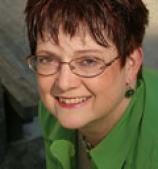Reading Group Guide
Discussion Questions
Morningsong

1. Sometimes we feel helpless to do anything about our situations and we take our anger and frustration out on someone or something in our lives. Mona fantasized about killing the cat. Have you had similar thoughts about taking it out on someone or something else? Are you having them now?
2. Hallie’s mom is in denial about her drinking problem. And Hallie has been silently hoping it would get better, but it hasn’t. She begins to see silence is enabling the problem to continue. “I’m’ helping a screwed up parent who won’t face her substance-abuse issues... Of course if we actually said the truth out loud, my mother might have to face the truth.”
Is there a truth you long to say to someone in your life? Write the words that you would use to speak that truth as Christ would have you speak it.
3. Mona had “fought against Ellen’s attempts to refill her hands again and again --- blaming her for not staying with the girls for those few seconds on the beach that day, for not coming faster, for allowing Hallie and Stacy to swim at all. It had taken almost two years for Ellen to speak to Mona again... ”
It has been said that when we refuse to forgive we hold another person in bondage. We hold ourselves in bondage as well. Is there someone in your life you have not forgiven? If so, how and when will you forgive?
4. Phil’s “inability to truly care for his family had fired a rage so deep in Mona that she’d struggled to rein it in. For years, she’d told herself it was a righteous anger, that she was entitled to it. Then after Stacy’s death, guilt had crushed her, and she’d struggled with her own desire to run, to shut down, to hide from pain. In those dark days, she’d found something of herself in Phil.
Are you able to look for the deeper reasons for a person’s negative choices? Can you do the same for some of the choices you have made? Are you able to have compassion, though not necessarily excuse, those choices made by you or others? Read 2 Chronicles 6:29-30 for some insight as you answer.
5. On the day Ellen came out of her coma Hallie chose to tell her how she really felt. She was honest about her anger and how Ellen’s drinking had affected her. And she also told Ellen she loved her, but would not continue to enable her drinking by covering and cleaning up for her. In other words, Hallie followed through on the boundaries she had decided to set, and spoke the truth in love. What do you think of Hallie’s choices?
Ephesians 4:15 says that speaking the truth in love we will in all things grow up into Him who is the Head, that is, Christ. Are you able to speak the truth in love? How do you feel about boundaries?
6. In American culture older people are often discounted. Their advice is largely ignored. When Harold tells Mona he would like to talk to her and offer options and advice she is anxious to hear it. She glances at her father’s diaries and realizes it has been a long time since she had an older man care about her. How do you perceive the wisdom of older people? Is there someone older in your life? What does God say about older people? Read Proverbs 1:1-9 as you answer.
7. Ellen has deeply wounded her daughter. Because of Ellen’s alcoholism Hallie has had to learn many sad truths. She has not been able to depend on her parent. Instead, she is placed in the role of parenting her mother. Alcoholism has also cost Hallie her grades, normal social activities, and deep responsibilities beyond her years. Ultimately it has destroyed Hallie’s trust in her mother, and at this point Hallie has chosen to close the door of her heart.
Ellen would like to change all of that, but Mona wisely tells her, “I know she doesn’t want to talk to you right now, but she’s angry, and you have to give her permission to be angry. You can’t change her, Ellen. You can only change you.”
Have you ever been faced with the realization that you cannot change someone (whether or not you hurt them) but had to make some changes in yourself as a result?
8. The author weaves the idea that there are things that can be learned from painful memories and hurts if we don’t let anger and bitterness scar over the wounds. She believes there are gifts in the pain if we can look beyond the now and unclench our hands to receive them.
What do you think she means? Do you agree? If you agree, what gifts have you received --- or could receive --- from yours? Read Romans 5:1-5 and consider how this can apply to your life.
9. What do you think the author means when she describes God’s voice in Hallie’s head as saying, “This isn’t about how many times your mom’s failed or you’ve failed. It’s about how much I’ve forgiven both of you. Once you see that, it’s all you’ll ever need.”
Is there a deeper understanding beneath the statement “Once you see that, it’s all you’ll ever need.”? What might that understanding be? How would it change our hearts?
10. Thinking He wants to talk with her, Hallie says, “I’d tell you how messed up my family is, except I know You know. You watch us mess Your world up every day and know what we’re going to do before we even do it, but You love us anyway. Learning You were that kind of God kind of blew my mind --- knowing You know how much I hurt inside and actually care about me. Mostly I’d thought You were like my dad, in some far off place, occasionally picking up a cell phone when You were really more interested in everything else in the universe.”
How do you imagine God in His relationship with you? Read Isaiah 55 for a taste of the truth about God’s love for you.
11. Ellen realizes, “As the days had unfolded and other people’s stories had surfaced, glimmers of gratitude had poked through to the surface of Ellen’s soul. The counselors had fanned them, but they’d been blunt. As long as she saw herself as a victim, she’d continue to life live as a victim.”
What does this mean? Is there a personal meaning for you?
12. As she begins to see herself more like God sees her, Mona begins to have a more positive perspective on the future, saying, “... I’m passionately committed to becoming the woman God created me to be, even when I know I sometimes mess things up.”
Could you honestly say you are passionately committed to becoming the woman God created you to be? Why or why not? Can you accept that you will not be perfect on this earth? What is your plan for beginning ?
13. As the story concludes, Adam realizes that “Mona would need to face the source of her struggles on her own. Forcing her to do anything would almost never be right for either one of them. He could trust her to work things out with God on her own. And so (he) swallowed hard as she’d driven out of town yesterday with barely a moment’s notice.”
How can facing our struggles on our own cause us to grow in our faith? Have you ever seen it alienate friends or family? What do you think makes the difference between the two responses?








